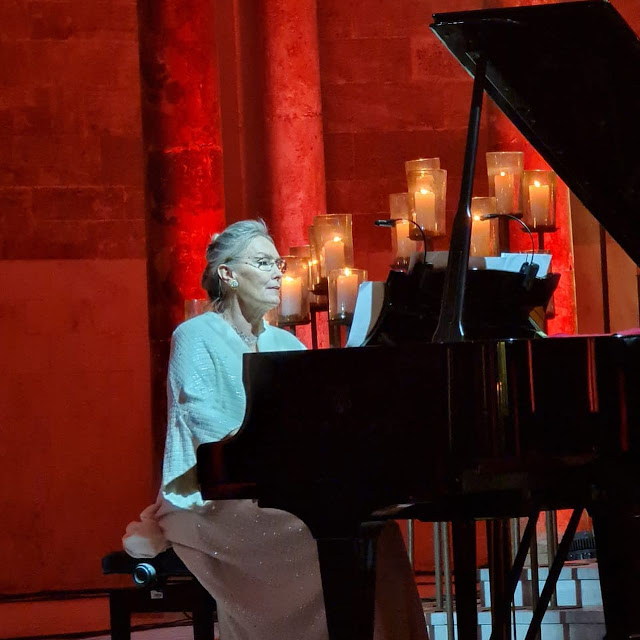Elizabeth Sombart
There’s a lot of contrast to be enjoyed within the tracklist of Elizabeth Sombart’s Singing the Nocturnes, starting between “Nocturnes, Op. 48 No. 1-13” and “Nocturnes, Op. 48 No.2-14.” Although they’re both presented in a minor key, there’s something specifically darker about the latter of these two movements than there is the former. It all starts with the execution Sombart utilizes at the piano, but it ends with the charismatic presence of the composer Chopin, whose spirit seems to travel with every tone we encounter in Singing the Nocturnes. This is a truly immersive offering and one that classical fans need to take note of this season.
TWITTER: https://twitter.com/sbibelle?lang=el
The sublime timing of “Nocturnes, Op. 62 No. 1-17” and “Nocturnes, Op. 9 No. 3” make this entire LP worth picking up on their own, but don’t think their best attribute is a one-off feature here. Actually, I would have to say that tempo does a lot to mold the undertow of this material even more so than I’m used to, which is no small statement to make if you’re familiar with Chopin’s Nocturnes.
We’re brought into the night by the hand of a familiar player, but hers is indeed a complex and cold route to take towards the morning light.
I’m sure there will be some critics who disagree with me, but from my personal perspective, I think that the fluidity of this tracklist is probably as much a positive feature as the actual performances are. There’s no breaking up “Op. 9” or “Op. 27” into different parts, and I think they make a lot more sense when they’re enjoyed together in the sequential order that Sombart appears to have intended with her creation of this LP. There’s a sense of adventure following every step she takes out of the silence, which is more than I’ve said about a classical record in a long time.
There’s never a need to overstate the piano, and Sombart rightly never does in Singing the Nocturnes. She’s keeping such a simplistic formula when she’s constructing the instrumental narratives for tracks like “Nocturnes, Op. 15 No. 1-4” or the concluding “Nocturnes, posthumous No. 21 in C Minor,” which honestly makes those who would deviate from this style sound a little overly experimental given the nature of the material at hand. I’m all for avant-gardism, but it’s really got no place within the context of an album like this one.
APPLE
You don’t need to be an audiophile to dig Singing the Nocturnes, but as a rather hardcore music fan, I can tell you that this is the kind of album that serious listeners aren’t going to have a difficult time getting behind. Sombart has already been such a force to be reckoned with on the classical circuit for years now, but this is an opportunity to grow her fan base with content that is near-universally recognized as being a cut above the standard. The Nocturnes get their second (or, to be proper, third) life under Elizabeth Sombart’s direction here, and I highly endorse you giving them a listen.
Cleopatra Patel




Comments
Post a Comment